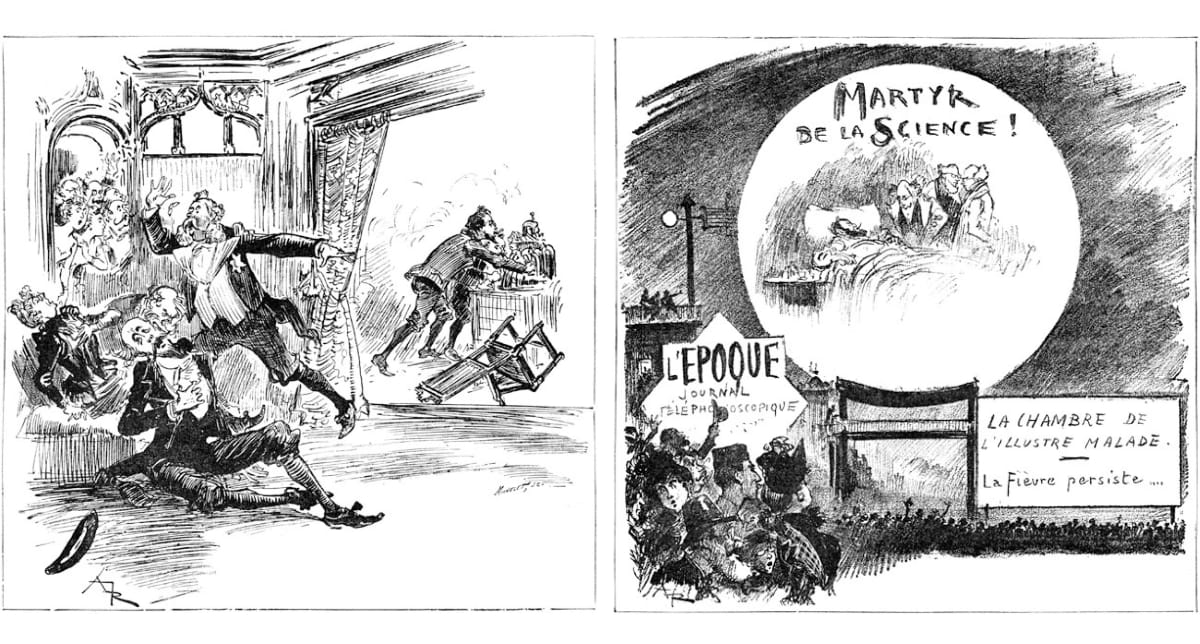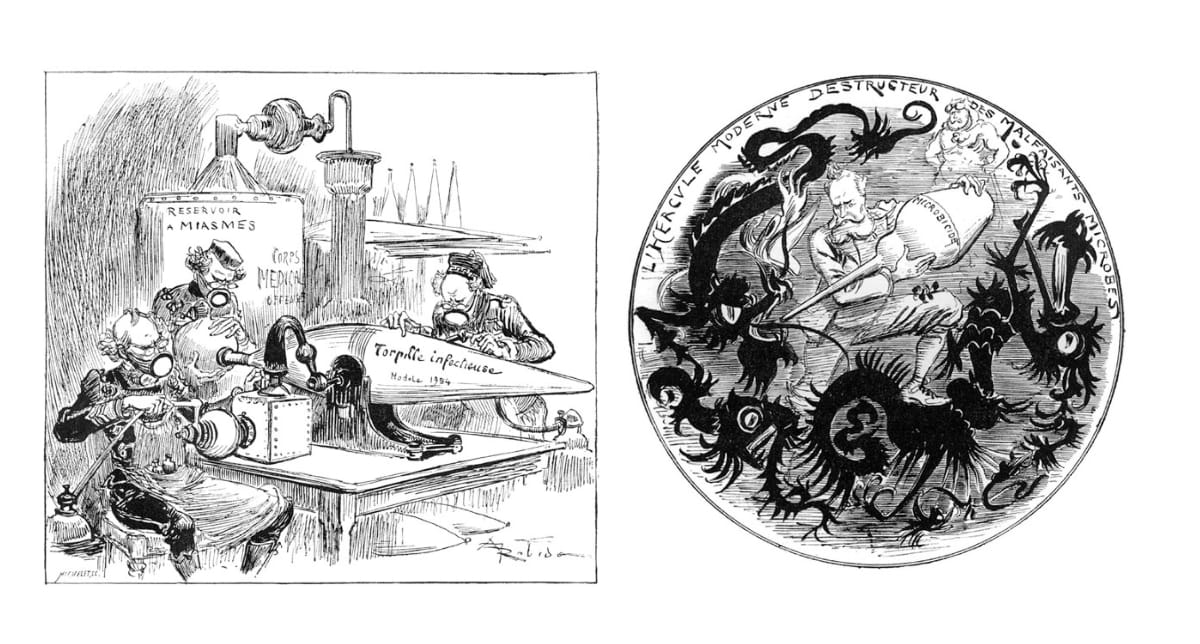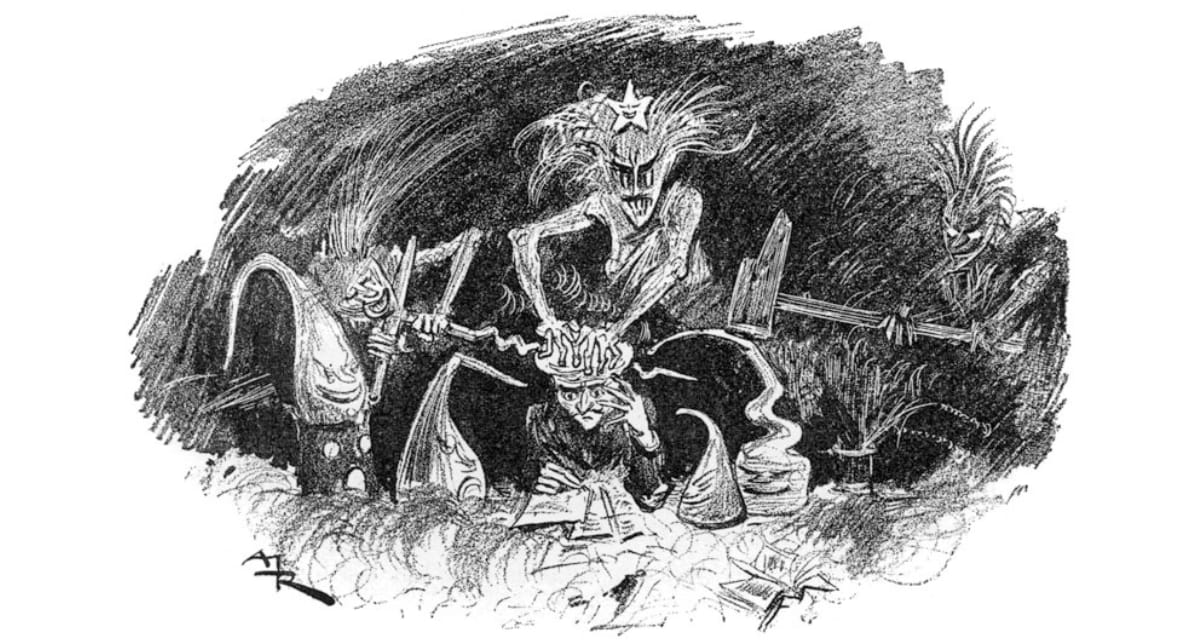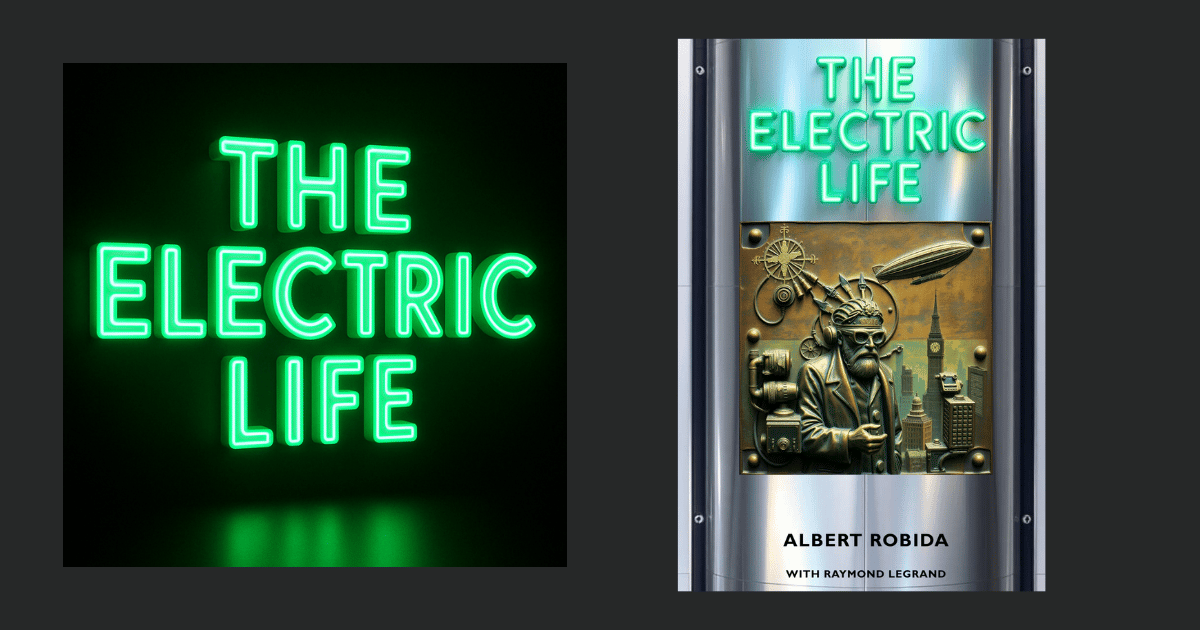The next time unintended disaster strikes will we be able to laugh at it? Will we be able to laugh at ourselves for being seduced so completely?
There's a disturbing story about technological seduction
The most prominent scientist-industrialist of his day threw a lavish party to announce the launch of his new venture. All the prominent investors, business and political leaders were in attendance.
As the party was reaching its crescendo and just before taking the stage, he pulled the most powerful politician into his private office to seek his support. He had achieved a revolutionary breakthrough blending biological warfare with public health protection – controversial perhaps, but firmly rooted in science.
Naturally, he wanted political backing to secure monopoly advantage. In exchange, he'd protect the local population from counterattack and demonstrate how his "miracle cure" could overcome another mysterious health epidemic that was causing growing concern.
Upon securing the critical endorsement and dazzling the crowd with his demonstration, an unforeseen and tragic accident occurred. Amidst the revelry, someone tripped over the canister of biological agents, releasing the pathogens and quickly infecting all of high society, causing pandemonium.
The stately mansion was transformed into a makeshift hospital ward. Untested dosages of the prophylactic cure were widely distributed. There was of course a complete media blackout, until the message could be managed. After the guests regained their health they became known as "Martyrs of Science."
Is it fantasy or have we been here before?
We’ve just lived through the greatest pandemic in a century and acquiesced to mandatory vaccination programmes. Pharmaceutical companies reaped windfall profits.
The hype of untested, ill-understood LLM’s reaches new heights with every product launch. Has GPT5 dropped?
In some countries, the partnership between industrialists and policy makers is more intimate than ever. It has become strangely normalized.

(L) A party interrupted by a chemical spill. (R) Revelers hailed as “Martyrs of Science”
Welcome to The Electric Life
Of course, the party is fiction. It's featured in a book that almost no one in the English-speaking world recognize, as it has only rarely been translated from the original French.
The Electric Life was written by Albert Robida, the widely celebrated illustrator and speculative fiction author from Belle Epoque France, who also co-founded and edited La Caricature, a popular magazine lampooning celebrities and politicians.
His trilogy, The Twentieth Century is a series of graphic novels written between 1883 to 1890, that imagined, from the vantage point of the dawn of electrification, how we might all be living in the 1950’s when electricity had become widespread. If you’ve ever watched the cartoon, The Jetsons, you now know where it got its original inspiration.
The third instalment and by far the most popular, The Electric Life went to print as the Eiffel Tower was being inaugurated at the Paris World Exhibition (1889). Gas lamps were being replaced by electric lighting. Otis Elevator rolled out a safer way to lift passengers. Thomas Edison introduced a radically improved phonograph, changing how people listened to music.
Everyone wondered what marvels the electrified future would hold. Robida gave his audiences more than flying cars and automated meal preparation.
Disturbingly prescient, the book imagined chemical warfare, to be used extensively only a few decades later. Not funny.
Romance blossoms via video-calling, a device known as a telephonoscope. Zoom was already a dream back in 1889.
Audio recordings were widely projected to displace printed books.Thankfully that one has not come to pass, though we are faced with a disturbing decline in actual reading.
Oh, and that powerful politician? He founded the “League for the Emancipation of Man,” in response to the rise of women to positions of political power. Remember, it’s satire and it’s from 100+ years ago, but it also illustrates what was on people's minds.

(L)The Offensive Medical Corp, (R) The National Medicine
We’ve lost more than our sense of humour
The Electric Life represents one of the many sad instances of influential works of social criticism that have been lost to the annals of time.
Ignored by publishers, forgotton by readers in the cult of newness and preference for immediacy, powerful ideas in timeless books are victim to the very erosion of attention itself. Authors who were revered in their day for prophetic insight are drowned out by AI chat bots flooding our screens with superficial, narrow, mediocre textual vomit.
Robida's satire is biting, provocative, and strangely poignant. The miracle cure that is announced is designed to treat the growing epidemic of “electric exhaustion,” an unexpected externality that causes premature aging, senility and atrophy of the body and mind. A once powerful business tycoon literally burnt himself out with constant screen flickering, resigned to an artificial womb. Scary stuff.
Clearly it's all not so far-fetched. From screen addiction to deep fakes, to just plain old burnout from overstimulation, reality is truly stranger than fiction. Despite more data and analysis than ever, I often wonder why really intelligent, cutting satire is not more widespread today.

Scientific Migranes
The Enduring Electric Exhaustion should give us Digital Pause
We need to ask the question: Is cognitive offloading and the associated cognitive decline today's equivalent of Robida's electric exhaustion?
"The use of LLM had a measurable impact on our participants, and while the benefits were initially apparent... the LLM group's participants performed worse than their counterparts in the Brain-only group at all levels: neural, linguistic, scoring."
There are a lot of caveats in studies whose reports have become sensationalised. As always technology depends on how we use it.
The same was true in Robida's day. Would his protagonist use cutting edge science to enable chemical warfare or for enhancing the resilience of the population in the face of over-electrification?
There is no mistaking that we have actually taken electrification to extremes as it has facilitated a high octane, always on, media saturated state of living. Blended work and leisure time, filled with back-to-back Zoom meetings, struggling to keep pace with Claude, endless Netflix streams, and limitless plain old email…
It's why this Harvard article reveals "67% of adults ages 18 to 34 say stress makes it difficult for them to focus."
If that is not electrical exhaustion, I don't know what is.
Let's hope technology leaders of 2025 will unplug and make time to read The Electric Life. I am not optimistic.
Reading opens the mind to new questions. What will you ask?
When you look around, what do you think future satirists will mock us for?
What should we be mocking about ourselves to lighten the mood, instead of getting angry and screaming into echo chambers of social media?
If you stepped back into 1889, what advice would you give Mr. Robida?
Robida wrote The Electric Life as comedic exaggeration. Yet his diagnosis of “electric exhaustion” is defining digital native culture.
Is it mildly ironic? Darkly humorous? Or, does it cut too close to the bone? Let us know your thoughts in the comments.
Ink & Time provides curated insights from lost or forgotten texts that were influential in their day, and distinctly relevant for us in 2025.
Note from our Sponsor: Time Warp Editions
Step into the retro-futuristic world of Albert Robida (1848-1926), the astonishingly prolific French visionary who created 60,000+ illustrations and authored nearly 80 books. Part Jules Verne, part Voltaire, Robida's witty satire imagines a 1950s Paris where flying machines dock atop cathedrals and families argue via video-telephones, while high powered professionals waste away from "electric life" exhaustion.
The Electric Life is his masterpiece. Here's a new and original translation from the French, refined and expanded for an English-speaking audience. The book contains over 100 plates of Robida's original artwork in what is arguably the first ever science fiction graphic novel, now modernized for 2025.



